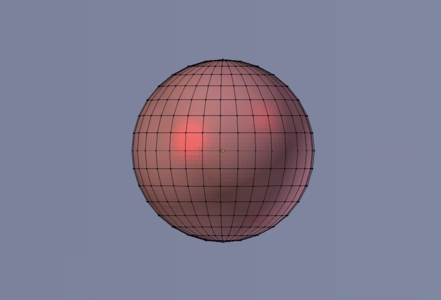Jaggy Star
I wasn’t happy with the star
image. It didn't look smooth and had kind of jaggy edges. I tried a bunch of
ways to fix that, without notable success. I had tried to smooth it out by
subdividing the object. That just made the file bigger, and the star still looked
jaggy.
I tried a different approach
this time and found that Blender’s subdivision surface modifier did what I
wanted. I had to delete the star I had been using and replace it with a new
one. I think it looks much more realistic now.
I also found that by of
replacing the star and using the modifier, I substantially reduced the size of
the Blender file. With the new star the file is less than 2% of what it had
been. This also resulted in the rendering working much faster.
A Mystery
I added in a little detail
that I suspect that many people will miss. It is visible in the video, but it
isn’t clear what it is. I want it to be a bit of a mystery and have people to
speculate on what it is.
Mission Clock
I created a "mission
clock" graphic to go with the video. It is kind of finicky work to do. At
least it keeps my mind occupied. I think what I have now is good enough for
what I want. I am always tempted to try and come up with something better.
Test Video
I did a test version of the
video which included the mission clock. It turned out better than I was
expecting. I was worried that the planet image would be too small and indistinct
to be interesting. They looked quite good. Of course, that hasn’t stopped me
from thinking I should try to find ways to make them look better.
Work to do
I still have some more
titles to add. I want to have captions describing the star and the planets. I
keep changing my mind about what names to give the planets. I do plan to have a
sort of catalogue number and designation, but I also want to give them
nicknames.
I want to include a title
with an explanation about why I wanted to make the video. I was inspired by the
Breakthrough Starshot project (https://breakthroughinitiatives.org/initiative/3).
From what they say, it will be 20 years before they can send a probe. Then
another 20 years for it to get to another star. After that, it would take 4
years for the data to get back to Earth. So, optimistically, it would 44 years
before we see anything. I rather doubt that I will be around for that. So, I
decided to make up my own “fake” starshot. I’m afraid that I can’t shrink down
that description into a short title at the start of the video. I’m open to
suggestions.
The video definitely needs a
soundtrack. I have toyed with the idea of having a dialogue between a pair of
news reporters commenting on what the video shows. At the moment I think that
is an extra step I don’t want to take. I’m not sure it would add that much, and
it would be a lot of extra work.
My current plan is to use
some of the sounds of the planets that NASA produced from the probes they sent
out. They are suitably eerie. I used them before in my “旅行火星 (My Trip to Mars)” video. https://dynamiclethargyfilms.ca/filmlist/my-trip-to-mars/
This post is a mirror from my main blog http://www.dynamiclethargyfilms.ca/blog

No comments:
Post a Comment